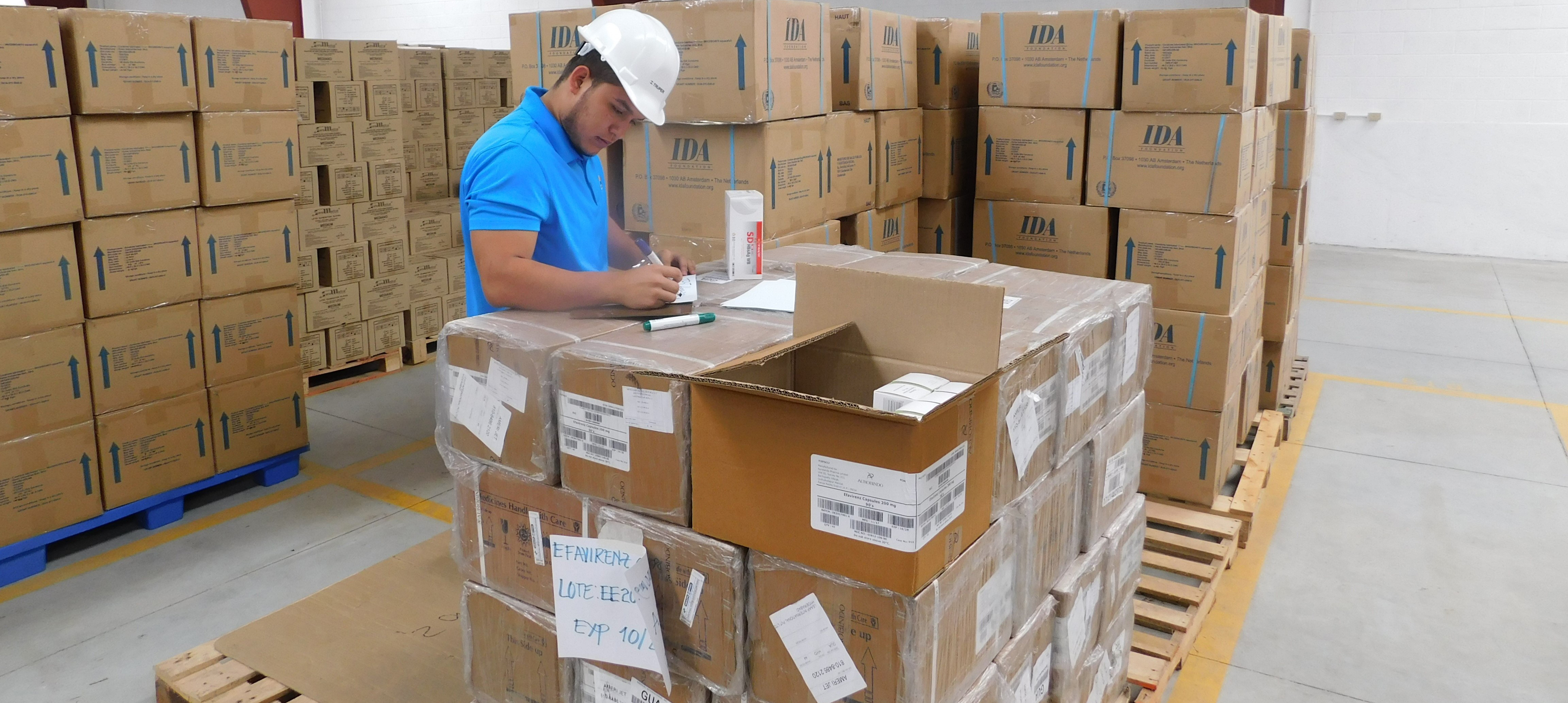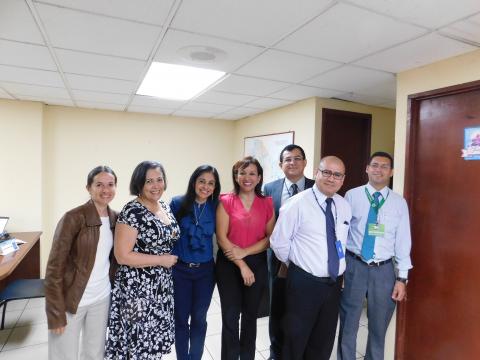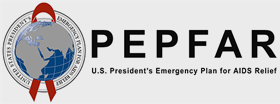In late September 2018, during a routine review of the El Salvador Ministry of Health’s national HIV/AIDS program procurements, the National HIV/AIDS Program director detected a quantity error in an upcoming order. She alerted the GHSC-PSM El Salvador Resident Logistics Advisor who found that the error would imminently result in a nationwide stockout of seven ARVs.
GHSC-PSM quickly jumped into action, alerting Ministry of Health, USAID Mission, and USAID Washington stakeholders as well as project office procurement staff. These stakeholders worked together to identify potential solutions to meet El Salvador’s urgent ARV procurement needs such as use of the USAID emergency commodity fund, commodity donations from other GHSC-PSM countries, local or regional procurement, and loans from other national or regional institutions.

In the four Central American countries that receive systems strengthening support through the USAID Global Health Supply Chain Program-Procurement and Supply Management (GHSC-PSM) project (Guatemala, Honduras, El Salvador, and Panama), each country’s Ministry of Health is responsible for the procurement of medicines and health commodities through outside partners.
GHSC-PSM provides technical assistance but does not implement commodity procurement activities. However, during a recent regional antiretroviral (ARV) shortage, GHSC-PSM demonstrated the project’s ability to support local partners to address urgent problems and avoid negative impact on patients in addition to our technical assistance efforts to prevent these situations from arising in the first place.

Using their experience from similar situations in other countries, GHSC-PSM led discussions on the pros and cons of each suggested solution to determine the best course of action. GHSC-PSM then coordinated with relevant parties in country including the USAID Mission, the Ministry of Health National HIV/AIDS Program, the Pan-American Health Organization (PAHO), and the El Salvador Social Security Institute (ISSS). Through these discussions, the parties agreed to mitigate the stockout risks through partial and earlier delivery dates from PAHO and short-term inventory loans from the ISSS.
With the El Salvador situation under discussion, the USAID Guatemala Mission Activity Manager, Patricia Rivera, raised valid concerns regarding similar situations in the other Central America GHSC-PSM countries. In response, the GHSC-PSM Resident Logistics Advisors provided a concise update of ongoing efforts in their respective countries to monitor ARV stock levels and to support solutions to any shortages. As of November, there were three ARVS at risk of stockout in Guatemala, four in Honduras, and six in Panama. In the case of El Salvador, GHSC-PSM closely monitored anticipated shipment and delivery dates, liaised with relevant local parties, and advocated for alternative solutions when needed. In Guatemala and Panama, these alternative solutions substituted comparable medicines to fill the gap. These replacement strategies prevented patients going without essential ARV medicines while their regular treatments were out-of-stock and until the new order of the ARVs arrived.
While prompt responses in the event of a shortage or stockout are critical, GHSC-PSM strives to help local Ministries of Health avoid commodity shortages and stockouts through preventative and proactive forecasting and supply planning and procurement through short- and long-term technical assistance.
- Logistics management information systems (LMIS): Through development and strategic use of LMIS, Ministry of Health national HIV/AIDS programs are better able to identify stock risks early and to take steps needed to prevent stockouts. GHSC-PSM has assisted in implementing these systems, ensuring functionality, and training staff on their use.
- Forecasting and supply planning: GHSC-PSM works to build local capacity in quantification and procurement planning of ARVs and laboratory supplies in Central American countries, emphasizing country ownership and sustainability.
- Strengthening procurement planning and provider accountability: The El Salvador ARV shortage revealed a rigid regional market for ARVs with limited procurement options to respond to emergency situations. This presents a challenge, as providers also face limitations to comply with delivery schedules. GHSC-PSM is working on several fronts to improve this situation, including the update of logistics administration system manuals to include changes in buffer stock levels, reevaluation of lead times, and setting of new minimum and maximum security stock levels. GHSC-PSM aims to generate a culture of systematic data review and strengthen government capacity to demand timely information from providers and to hold them accountable for delays.
- Improving and diversifying local procurement options: GHSC-PSM seeks to expand the market options in the region, advocate for joint procurement mechanisms, and analyze the advantages and disadvantages of using alternative procurement options.
- Collaborating with logistics implementing partners: To amplify its assistance impact, GHSC-PSM is collaborating with other implementing partner projects in the region to ensure that there is sufficient delivery and stock management and support in place.


